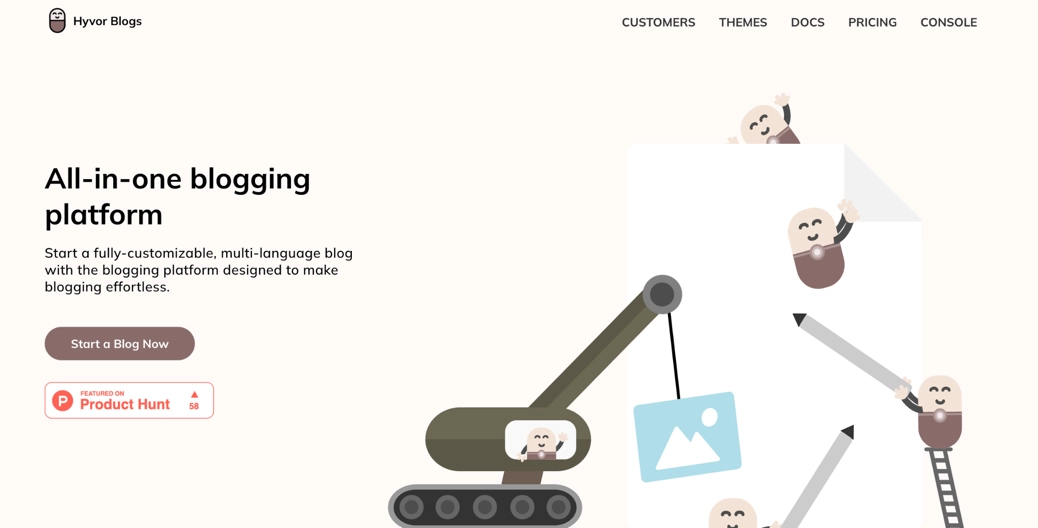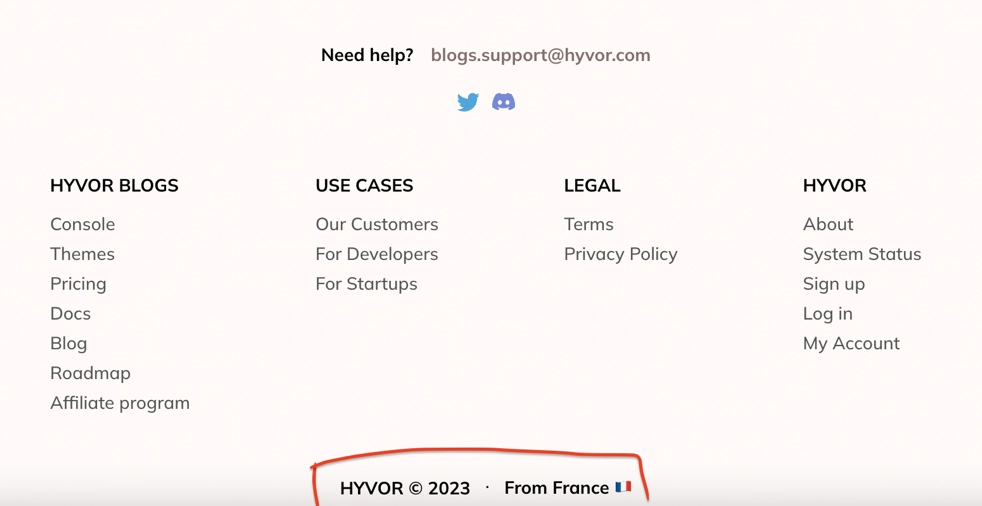Starting your own blog or website comes with the responsibility of dealing with various legal aspects, including copyrights, blogging laws, and policies.
As a blogger, you may find yourself facing a maze of trademarks, laws, copyrights, regulations, and licenses, which can be overwhelming and confusing.
Surprisingly, your blog can be subject to lawsuits if it fails to follow certain rules, just like any other business.
The good news is that you don't have to be a lawyer or legal expert to understand the key laws that govern blogging, especially in the United States.
In fact, there are seven fundamental blogging laws that every blogger should grasp.
In this article, we will provide you with a comprehensive understanding of the essential blogging laws, easy ways to ensure compliance, and how to avoid legal trouble.
Let's delve into the law blogs, learn how to easily comply with them, and safeguard your blog from potential legal risks.
1. Privacy Policy Law
Privacy policy laws have been established in different regions to protect user information and ensure transparency in data handling practices.
If you are a blogger or website owner, you might need to care about Privacy policy laws.
It means that when you collect information of visitors have to follow the Privacy policy law.
This informs visitors about what you will do with their information when they provide it to you.
The website's privacy policy should be linked in the footer (Hyvor Blogs has a good one).


For example:
If you subscribe to a blog channel, you may have to provide some information such as:
Names
Email Address
Address
Phone number
Credit card information
Date of birth
With Privacy Policy Law, will protect all personal information you provide on that blog site.
Non-compliance with privacy policy laws can result in severe consequences, such as fines, penalties, and reputational damage.
Therefore, bloggers must understand and comply with these laws to protect their users' privacy and maintain trust.
In terms of privacy policies, there is no universal law. To protect user information, different jurisdictions have enacted multiple laws.
These laws include:
1. The California Consumer Privacy Act (CCPA)
The CCPA law is a prominent privacy policy law in the United States, specifically applicable to businesses operating in California or serving California residents.
The CCPA grants consumers various rights, such as the right to know what personal information is collected about them, the right to opt out of the sale of their data, and the right to request the deletion of their data.
2. The General Data Protection Regulation (GDPR)
The General Data Protection Regulation (GDPR) is a comprehensive data protection regulation applicable to businesses that process the personal data of individuals in the European Union (EU).
The GDPR sets strict requirements for data handling, including the need for informed consent, clear privacy policies, data breach notification obligations, and enhanced rights for individuals regarding their personal data.
3. Children’s Online Privacy Protection Act (COPPA)
The COPPA is a U.S. law that protects the online privacy of children under the age of 13.
It requires website operators to obtain verifiable parental consent before collecting personal information from children and to provide detailed privacy policies tailored to children's needs.
4. The Privacy Act 1988
The Privacy Act 1988 is an Australian law that regulates the handling of personal information by Australian government agencies and some private sector organizations.
It sets out privacy principles that govern the collection, use, and disclosure of personal data, and provides individuals with rights regarding their information.
5. Privacy Policy Lawsuits
Online businesses face lawsuits every day for not having a proper Privacy Policy that complies with laws and provides legal protection.
The Federal Trade Commission (FTC) actively sues companies for violating consumer privacy laws.
Recent high-profile cases involve Meta (formerly Facebook) and Google, both paying millions in settlements.
It's worth noting that the impact of the GDPR extends beyond the European Union, affecting businesses worldwide.
In fact, Google's recent settlement stands as the largest consumer privacy settlement led by an attorney general.
Ensure your blog has a robust and compliant Privacy Policy to safeguard your online business.
How to create a Privacy Policy:
There are several ways to create a privacy policy for your blog.
They include:
Engage the services of a legal professional
Use an online privacy policy generator
Write one yourself
2. Copyright Law
Copyright law is a legal framework that grants creators exclusive rights over their original works, such as literary, artistic, musical, and dramatic creations.
It protects the expression of ideas, allowing creators to control how their works are used and preventing others from copying, distributing, or reproducing their creations without permission.
Under copyright law, creators have the following rights:
Reproduction
Distribution
Derivative Works
Public Display and Performance
Types of Original Work that Need Copyright Protection
Copyright protection extends to various types of original work, including but not limited to:
Literary Works: This includes written content such as blog posts, articles, novels, poems, and essays.
Artistic Works: Artistic creations like paintings, drawings, photographs, sculptures, and graphic designs are protected by copyright.
Musical Compositions and Sound Recordings: Copyright covers musical compositions, including sheet music and lyrics, as well as recorded performances of those compositions.
Audiovisual Works: Copyright protection extends to audiovisual works such as movies, videos, animations, and documentaries.
Architectural Works: Architectural designs, blueprints, and plans are also subject to copyright protection.
Software Code and Computer Programs: Copyright protects computer programs, software code, and the architectural design of the software.
For example, if you want to add photos or videos to your article, you can optionally add them as long as it's your own creation.
But you may also want to borrow photos from other sources to include in your blog. It's okay, just ask for permission to use them and credit the image source below each photo.

Pro tip: Forget Google images and go to this free legitimate stock photography site.
1. Copyright Symbol
A copyright symbol, indicated by ©, is a visual representation that signifies that a particular work is protected by copyright.
You are not compelled to add a copyright notice on your blog site, but it is a good idea to inform readers that you are claiming copyright and intend to pursue your rights.
When creating a copyright notice, it is essential to include the copyright symbol, the copyright owner's name, a statement of rights, and the year of publication.
To craft a proper copyright notice for your blog, remember to include the following elements:
Utilize the copyright symbol (©), or you can alternatively use the word "copyright" or the abbreviation "copr" (although this abbreviation is less commonly used).
Specify the year of publication.
Provide the name of the copyright owner or company.
Include a statement of rights, such as "All rights reserved."
Example - copywrite notice in website footer from Hyvor Blog

2. Copyright Infringement
When creating content for your blog, it is vital to avoid using copyright-protected material without obtaining the necessary permission.
Non-compliance with copyright law can lead to legal consequences, including lawsuits.
So, what should you do if someone copies your work?
If you want to protect your work, you should simply send them an email and let them know that what they are doing is called copyright infringement.
If you are dealing with an understanding person, then they'll probably apologize and take the copy down.
If you're dealing with somebody who doesn't care what you think, then you'll need to weigh the cost of pursuing legal action.
3. Terms and Conditions
Terms and conditions are the rules that govern your website and act as your blog's terms of use and service.
They indicate what you allow and don't allow regarding the blog, serving as legal protection for you and the content you share.
Most bloggers don't realize the importance of this section until it's too late and they are faced with a lawsuit.
So, It's important to set up your online business correctly from the beginning to avoid complications.
What Should Be Included in Terms and Conditions?
Ideally, the terms and conditions should indicate:
Lawful Use of the Blog
Exchange and Refund Policies
Communication, Management, and Resolution of Legal Disputes
Intellectual Property Rights
If you're not sure how to make a comprehensive Terms and Conditions website, this Legal Bundle offers everything you need.
You'll receive an easy-to-customize template for your blog.
4. Disclosures for Affiliate Links and Sponsorships
When working as a blogger, it is common to establish partnerships, engage in sponsorships, and participate in affiliate relationships with various companies.
To ensure compliance with consumer protection regulations, such as those enforced by the Federal Trade Commission (FTC).
What Should Be Disclosed?
When it comes to affiliate links and sponsorships, the key is to disclose any material connections that may influence your content or recommendations. Here are some guidelines:
Sponsorships and Partnerships
Product Reviews and Endorsements
On your blog, make sure to include clear and conspicuous disclosures that reveal your affiliations, sponsorships, and endorsements.
How to Make Effective Disclosures
To ensure effective disclosures, consider the following best practices:
Conspicuous Placement
Clear and Understandable Language
Separation from Content
Language Examples
Remember to comply with the specific disclosure guidelines and regulations of your country or region. Stay up to date with any changes in the disclosure requirements to ensure compliance.
5. Disclaimers
Disclaimers are essential for clarifying the nature of your blog content and managing expectations.
They communicate that your content is for informational or entertainment purposes, set realistic expectations, and limit liability.
Key elements to include in your disclaimers include:
Content Accuracy
Non-professional advice
Personal responsibility
External link disclaimers
6. Defamation Lawsuit
Defamation lawsuits can have serious consequences for bloggers and online content creators.
Understanding the basics of defamation law is essential to safeguard your reputation and avoid legal troubles.
Defamation refers to false statements that harm the reputation of an individual or entity.
It can take two forms:
Libel (written or printed)
Slander (spoken)
To establish a defamation claim, the following elements must be present:
False statement
Publication to a third party
Resulting harm to reputation
If you are accused of defamation, you may face legal consequences such as paying damages, issuing retractions, or incurring legal costs.
To protect yourself, it's vital to fact-check information, differentiate between statements of fact and opinions, and maintain balanced reporting.
Seeking legal advice when in doubt about the potential defamatory nature of your content is always a wise decision.
7. Self-Employment Taxes
Blogging has become a popular source of income for many individuals, generating revenue through affiliate income, advertising, and selling goods and services.
As a personal blog writer, it's crucial to understand the tax implications of your business. Here are important points to consider:
Self-Employment Taxes: Bloggers are subject to self-employment taxes, also known as SE taxes, which include social security and Medicare taxes. If your annual self-employment income is $400 or more, you are required to pay these taxes.
Tax Laws Vary: Tax laws differ based on the country you reside in and operate your blog from. It's essential to familiarize yourself with the specific tax regulations applicable to your location.
IRS Regulations: In the United States, the Internal Revenue Service (IRS) has specific regulations concerning self-employment taxes that bloggers must adhere to.
Deductions: As a blogger, you are entitled to claim deductions for business-related expenses. Common deductions include:
Legal and accounting fees
Office Supplies
Educational expenses (courses or books related to your blog)
Repairs & maintenance for business equipment
Health insurance for yourself & your family
Commissions paid to others
Fees for hiring assistance
Business Insurance
Remember, understanding and adhering to tax obligations are vital aspects of running a successful blogging business.
Conclusion:
Blogging offers an incredible opportunity to share information, build a business, and establish a sustainable income.
However, it's essential to be mindful of the law blogs that govern and impact the blogging world.
By being aware of these legal blogs, you can proactively take measures to ensure compliance and avoid any potential legal complications.
Blogging within the bounds of the law not only protects you but also safeguards your blog's reputation and longevity.
Remember, as you embark on your blogging journey, make sure to stay informed about the legal requirements and adhere to them.
This way, you can enjoy the benefits of blogging while operating your blog in a lawful and ethical manner.
For someone who is looking for a quick way to start blogging, here is everything you need.

Comments